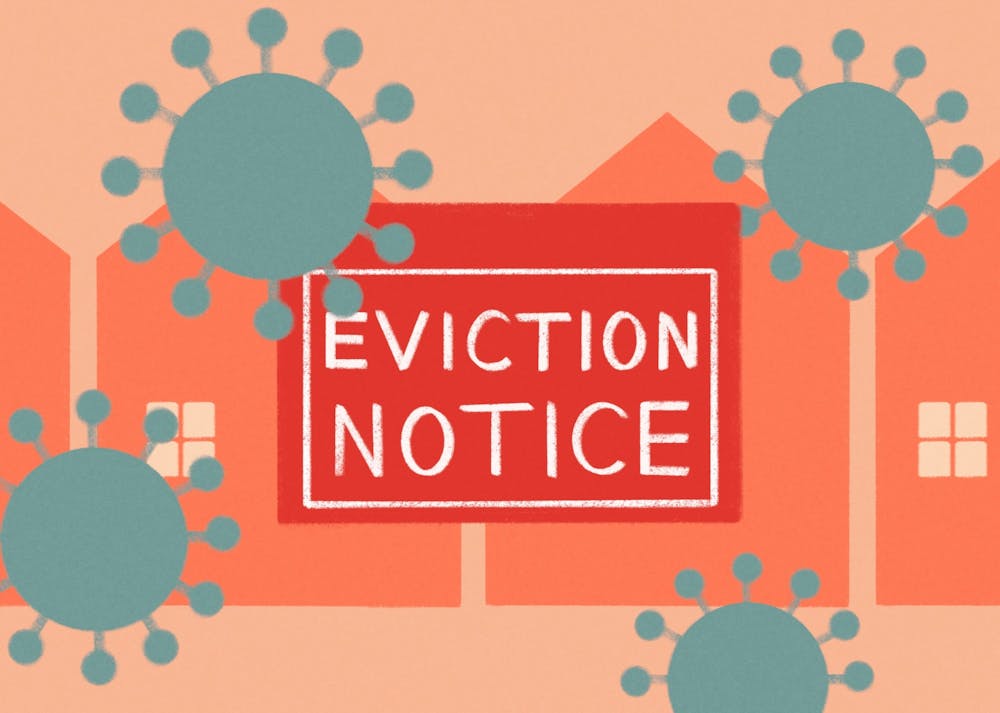The city of Tempe has a variety of housing and rental assistance programs to help residents deal with the rising housing issues many are facing due to COVID-19, but as these programs run out of money, many recipients of assistance could be left in a life-altering situation.
The city was provided $22.5 million in CARES Act funds out of the $1.86 billion Arizona received as a state. $1.9 million of the CARES Act funds the city of Tempe received went to the housing and rental assistance programs, including the CV-3 program.
The CV-3 program aims to keep families in their homes and provides them $10,000 or six months of assistance, whichever comes first, said LeVon Lamy, housing and revitalization manager for the city.
"It's preventing homelessness and you specifically have to have a direct tie to COVID-19," Lamy said. "So as long as we have that direct tie and you are income eligible, then we move you through the process."
Lamy said overall, CV-3 has been successful in keeping families in their homes, but after the CARES Act funds run out, the program goes with it.
"Once we get folks caught up on rent, (the program is) helping folks to remain in their homes," he said. "Without additional stimulus funding coming in from the federal government or the state, we have very few options. Actually, no options."
Deirdre Pfeiffer, an associate professor in the School of Geographical Sciences and Urban Planning, conducts research on housing and is involved in partnerships with the community to help solve housing issues in Arizona.
“There’s a feeling that this is going to lead to a huge crisis if we don’t do something more than we’re doing now,” Pfeiffer said.
The housing crisis in Arizona is not new, and COVID-19 has only made it worse. According to a Sept. 2020 report from New America, in Maricopa County, roughly 47,000 households lose their homes each year, and evictions make up 90% of housing loss.
The housing crisis also affects students, Pfeiffer said.
“I’ve had countless students come to me over the pandemic since March and have asked for flexibility and communicated the various issues they’ve gone through,” Pfeiffer said. "It really sets students on this downward spiral and doesn’t set them up for success.”
A big issue that the Phoenix area is facing is a shortage in affordable housing, as Joanna Lucio, associate dean for the School of Public Affairs, said.
“There’s always some amount of the population that has struggled to afford rent or to purchase a home because there’s not enough affordable housing stock,” Lucio said.
Lucio is currently researching how to combat opposition to affordable housing.
“(I’m) trying to figure out how we can convince people that affordable housing is good for everyone,” Lucio said. “It will actually help our neighborhoods if we increase affordable housing even in our own backyard.”
Housing security increases access to resources like libraries, parks and stable schooling — needs that, when met, increase residents' quality of life.
“Having shelter fulfills a basic need we have as humans to protect ourselves from the weather, provides the space to care for ourselves and raise our families,” Pfeiffer said.
Having a stable place to live also has a big impact on an individual's community, which is of great importance to the resident.
“That sense of belonging and welcome is something that is essential for people to build those ties, access resources and feel like they can be there,” Lucio said.
Reach the reporter at mcfisch4@asu.edu and follow @morgfisch on Twitter.
Like The State Press on Facebook and follow @statepress on Twitter.
Continue supporting student journalism and donate to The State Press today.

Morgan Fischer is the politics editor, she works with her desk to cover topics related to politics in the ASU community. She has previously worked as an intern for RightThisMinute.




